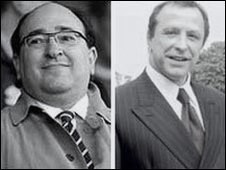Court of Appeal victory will have major impact on real estate transactions

Law firm Mills & Reeve has emerged victorious in a long-awaited judgement concerning identity theft during the sale of a property, which could affect solicitors throughout the country.
Identity theft during the conveyancing of properties is becoming depressingly more common.
In the cases considered by the Court of Appeal – Dreamvar (UK) Ltd v Mishcon de Reya and P & P Property Ltd v Owen White and Catlin LLP
– the identity thefts involved an imposter posing as the true owner of a property and selling it to an unwitting buyer.
After agreeing to buy the house, the buyer’s solicitor sent the purchase monies to the imposter’s solicitor, who then forwarded it to the imposter.
The title did not transfer since the real owner was not involved, the imposter disappeared with the money and the buyer lost the purchase money.
As is often the case, the money was borrowed, leaving them with an increasing debt and no asset.
Niall Innes, partner and head of the Manchester office of Mills & Reeve, who acted for the successful estates agents in P & P Property Ltd v Owen White and Catlin, said that in cases where an imposter poses as the true owner of a property and seeks to sell it, the question for the court to consider was who is liable to the buyer after the fraud is identified?
The court had to answer the very difficult question of whether they have any basis to recover that from their own solicitor, the imposter’s solicitor or the imposter’s estate agent.
He said: “The Court of Appeal was being asked to reach a difficult decision.
“Who, among a number of innocent victims of the imposter’s fraud, should bear the loss? Should it be the buyer, who has probably never met the imposter and could not realistically do anything to prevent themselves being a victim of the fraud?
“Should it be the buyer’s solicitor, who has no contact with the imposter and has no means of identifying that a transaction is fraudulent?
“Or should it be the imposter’s solicitor and estate agent, who are the ones who have contact with the imposter, but are almost certainly entirely innocent victims of a sophisticated fraud where the imposter is able to produce convincing evidence of their identity?”
The Court of Appeal decided that the solicitors should bear the brunt of the liabilities.
A decision that risks making solicitors effective guarantors that a transaction is genuine.
Mr Innes added: “Conveyancing is competitive, and it is difficult. It has always attracted significant risk of claims, notwithstanding the low cost which firms can charge.
“Unfortunately, life for the average conveyancer has just been made much harder following this decision.
“It is disappointing, given the wide potential effect of the decision, that the Court of Appeal did not give any real guidance about what solicitors can do to avoid their liability, and that the court was unwilling to excuse a breach of trust under section 61 of the Trustee Act 1925 when the solicitor in question had performed their role perfectly.
“The decision will have potentially significant effects on solicitors’ own insurance arrangements and it will inevitably lead to practical difficulties during the course of conveyances as buyers’ and sellers’ solicitors try to pass liability onto the other.
“It can only be hoped that, pending any appeal, the Law Society and the Council for Licensed Conveyancers provide urgent guidance about how conveyancers should proceed in light of the decision.







